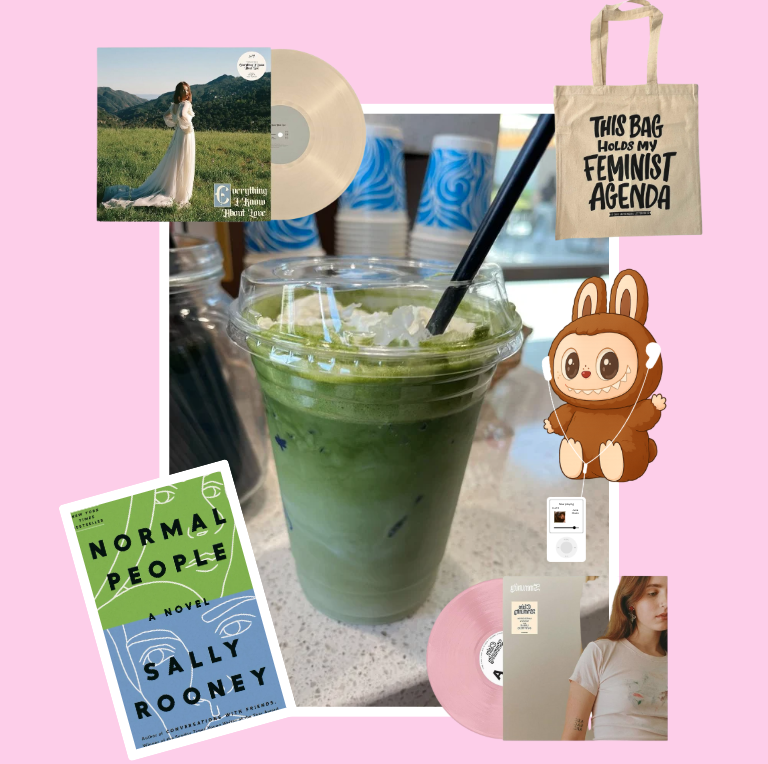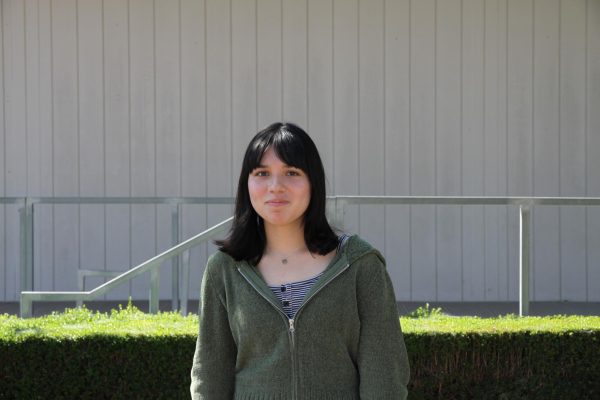Earthy and sweet: the obsession with matcha products has grown rapidly in urban areas as fans discover the intriguing flavor profile of the drink. From drinking lattes to competing in performative male contests across the country, matcha has quickly become associated with a controversial online persona known as the performative male. Drinking matcha is a staple to his identity, but he is also known for repping a tote bag, owning a Labubu plush toy, reading in public, and listening to artists like Clairo or Laufey.
As of late 2024 to early 2025, matcha became the face of performative males, a new personality archetype characterized by young men on TikTok and Instagram pretending to be more soft and in touch with their feminine side. What started off gradually with men on social media posting themselves drinking matcha and publicly reading feminist literature quickly became a stunt for female attention. These men portray themselves as having deconstructed and gone against traditional masculine beliefs by expressing their “niche” interests and indulging in activities that are perceived as appealing to some women. On the flip side, many social media users across platforms have questioned the authenticity of these males’ personalities and consider the female gaze as one of the key contributors to this trend. While some sides argue that it’s a lifestyle centered on tearing down gender roles, others are skeptical, perceiving it as inauthentic or satirical.
Senior Kareem Hosan elaborates on his perspective of the performative male trend as someone who has been labeled as performative before, explaining that using this label can be both lighthearted and demeaning.
“Sometimes it can be funny if it’s used right, but some people just call you out at the most random times as if it’s a derogatory term when sometimes you’re just trying to be yourself,” Hosan said.
Hosan also speaks on how social media has acted as a catalyst for spreading the stereotype and a hyperawareness of matcha consumption.
“It helped define what a performative male is, but it also stereotyped a lot of people. It reinforced the stereotype that if you do any of those things then you’re seen as performative,” Hosan said. “Like, matcha, for example, you can’t drink matcha anymore.”
Yet from an insider’s perspective, some males have gone to defend their interests, claiming it’s simply a lifestyle and not a fad.
Senior Alex Flores admits listening to trendy female artists such as Clairo, Beabadoobee and Laufey, but does not personally resonate with traits of a performative male.
“I listen to them, but I don’t think I’m performative,” Flores said.
Many male students have expressed the exaggerated nature of the stereotype and how most men do not genuinely identify as a performative male; being labeled as performative stems from the idea that some men are seeking attention from women by jokingly adopting a certain aesthetic.
As the targeted demographic of performative male behavior, senior Gabriela Geronimo speaks on her perception of performative males who are populating the community.
“I know that they drink Matcha, they wear wired earbuds, wear tote bags, and they read literature about feminism or female experiences. From what I have seen, it’s just for looks and not genuine,” Geronimo said.
Many young women have grown aware of the stereotype and recognize many of the behaviors or mannerisms associated with it, along with its implications.
Those behind the counter, crafting these “performative” green drinks, reveal how this trend has given a substantial rise to sales at their cafe. SAC Cafe barista Giselle Rangel describes how the trend has been both beneficial for the cafe and difficult to manage due to increased demand while being scarce on matcha.
“Ever since we added matcha to the menu, it has brought in a lot of people. We have a lot of customers that regularly order matcha every time they come in. It has increased our sales, and we actually had a matcha shortage recently as well. Since there’s a matcha shortage in the world right now, we’ve had times when we ran out of matcha because of how much it gets ordered,” Rangel said.
Keyna Ortega, another SAC Cafe barista chimes in on the correlation between sales and social media.
“It does make sense to me that people like to order a drink just because they see that everybody on social media is ordering it to be cool,” Ortega said.
Social media content creators have majorly influenced matcha consumption over the past year, convincing others to try it out for themselves. However, online platforms have also fostered hate towards others for simply being open about their interests, regardless of whether those interests stem from social media or not.
Geronimo comments on the unfortunate aspect of having a taste labeled as performative and why people should strive to do what makes them happy.
“People make fun of matcha, which is sad, because people actually like it. Like, I like matcha. Some people are just embarrassed to share that, but I would still give two double thumbs up to people who are open about liking matcha and listening to Clairo because they’re expressing themselves,” Geronimo said.
While some see it as a shift in traditional masculinity, others see it as a shallow attempt to gain attention. Regardless of the reason, it has left a mark on consumer habits, male expression and social media outreach. Whether performative or authentic, performative males continue to stir controversy—and matcha lattes.



































